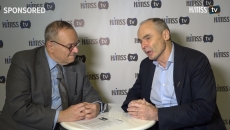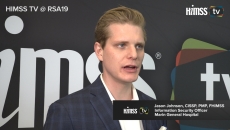Analytics
Ian McCrae, founder and CEO of Orion Health, says machine learning can provide physicians and nurses with medical records that are usable and not overwhelming.
Hyland's data extraction engine captures metadata from multiple modalities and normalizes the data to meet the business profiles of the organization, says Peter Weston of Asia Pacific, Hyland.
Jason Johnson, information security officer at Marin General Hospital and HIMSS Northern California Chapter president-elect, explains why a security leader must not lose the faith of users.
Renown Health was able to increase Medicare Advantage membership 4 percent by using data, analytics and outreach to get to know its consumer.
Digital health progress is being made at the state level, according to Jim Douglas, former Vermont governor and co-chair of HIMSS State Advisory Roundtable, and Cynthia Green-Edwards, chief compliance officer with the state of Michigan.
As AI and machine learning become a bigger component of care delivery, maintaining the human touch will be vitally important.
The healthcare industry should be looking at what some of the tech giants are doing to determine how to move forward.
Todd Crosslin, VP of healthcare strategy at Snowflake Computing, explains how his business can help providers transition to the cloud.
Why don't patients do what they know is good to stay healthy? The answer often comes down to the social determinants, expert says.
Current Health CEO Christopher McCann discusses how data from his company's wireless device is analyzed and shared with healthcare providers to improve the outcomes of high-risk patients at home.






